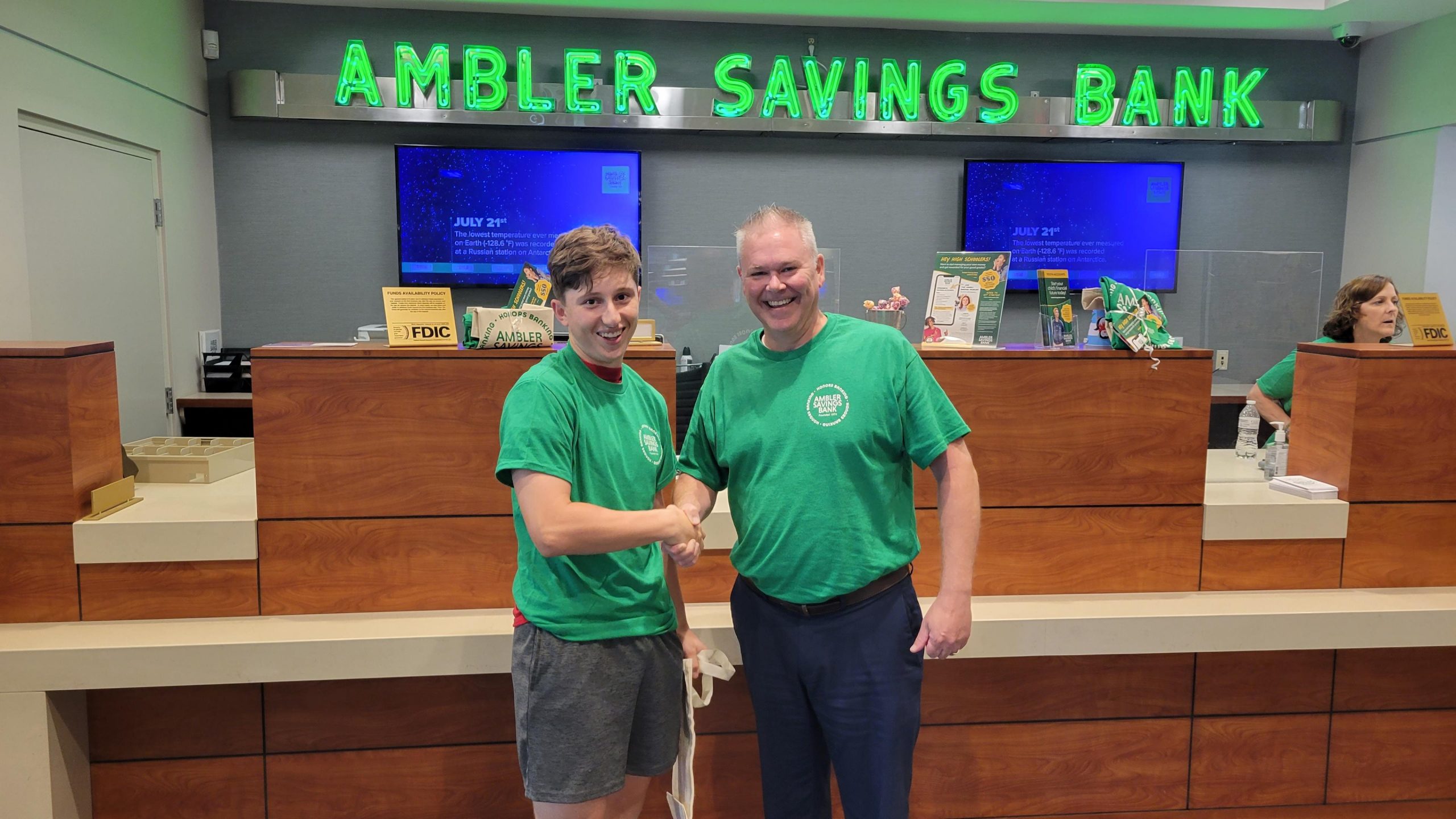
By Jennifer Rossi, Commercial Lending Specialist
April 2, 2025
When it comes to preparing our teens for the future, few lessons are as vital as those involving personal finance. As a mom of three, I’ve seen first-hand how equipping teens with financial literacy can set them on a path to independence and success.
88% of U.S. adults report that they felt high school did not leave them fully-prepared for how to handle money in the real world1. High school is a good time to start teaching teens about managing their money. Here are some essential tips and insights on how I helped my teens.
The Importance of Financial Literacy
Financial literacy can empower your kids to make informed decisions, avoid common pitfalls, and build a secure financial future. Some fundamentals to talk about are budgeting, saving, investing, and managing debt. As your teen starts their first job and makes real choices with the money they earn, equipping them with the skills to manage their money, can help them make educated decisions that positively impact their long term financial health.
Budgeting
Teach them how to create a budget. Once they get their first job, have them track their income and expenses. In today’s world where apps like Venmo and Cash App offer instant access to cash, it’s important for kids to see what’s going in and out of their account.
Wants vs. Needs
Talk to teens about the difference between wants and needs. At this age, some teens can be concerned with instant gratification. They see it and they want it. This is when it’s important to teach them how to budget their money and to save for items they want and not make impulsive purchases.
For example, your teenager might want new workout clothes, but they also need gas for the car to get to work.
Price Shop & Read Reviews
Show your kids how to compare prices and read product reviews. A simple trip to the grocery store to compare prices of name brand vs. store brand is a good example. Reading reviews of products online can help avoid scams by learning about other’s experiences with purchases.
Scams and Deceptive Advertising
Look out for deals on social media that seem too good to be true. Check the seller’s website for authenticity of their location and make sure payment options are secure. Also, be on the lookout for discount clubs that may have hidden fees.
For instance, I can recall that one of my children accidentally signed themselves up for a VIP account on a website after clicking on a pop-up ad for a coupon on a purchase. Because they didn’t read the fine print and also were not actively reviewing their account in online banking, they didn’t immediately see the $15 a month charge for the VIP account.
Saving
Having a savings account is a valuable tool. Talk to your teen about setting short term and long term goals. Do they want to save for something special at Christmas or are they savings for plans after high school? Work with them using modern banking tools to set up a specific dollar amount or percentage of their paycheck or allowance to be deposited to a savings account. This will help them build those goals and start good habits early. It can also provide them with purpose and a sense of responsibility.
Banking
Getting my teen’s setup with online and mobile banking was a game changer. Then they started checking their accounts regularly and making informed decisions.
When one of my children started college, they got good at checking the mobile app and often shared with me they were making sure they had enough in the account for an upcoming purchase they wanted to save for. It was rewarding to see them start making those decisions. Sometimes they still might make mistakes, but that’s part of learning responsibility too.
Also talk to them about interest rates, fees, overdraft protection, and the importance of maintaining a positive balance. You can also show them savings strategies, such as setting up automatic transfers between accounts.
Opening an Account at Ambler Savings Bank
The Honors Banking Program for teens at Ambler Savings Bank is a stepping stone to teaching personal finance because they are enrolled in both a spending and savings account. With digital tools, it’s easier than ever to teach how to monitor and manage accounts.
Teen Honors Banking Program
Ambler Savings Bank offers bank accounts for teens grades 9-12 called the Honors Banking Program. The program also offers a Good Grades Bonus*. Students in the program with a cumulative end-of-year weighted GPA of 3.5 or better can receive a $50 bonus – each year they qualify. Simply bring in your report card or transcript at the end of the year (by July 31st) to be eligible.
*Learn more about the program here.
Conclusion
Teaching my children about their money and financial responsibility has been a very impactful lesson I’ve been able to share with them. With the right knowledge and tools, they can navigate the complexities of personal finance and build a solid foundation for their future.
Open a bank account for your teen at Ambler Savings Bank today.
1.Ramsey, The Financial Literacy Crisis in America: 2023 Report, (Ramsey Solutions, 2023), Page 1


